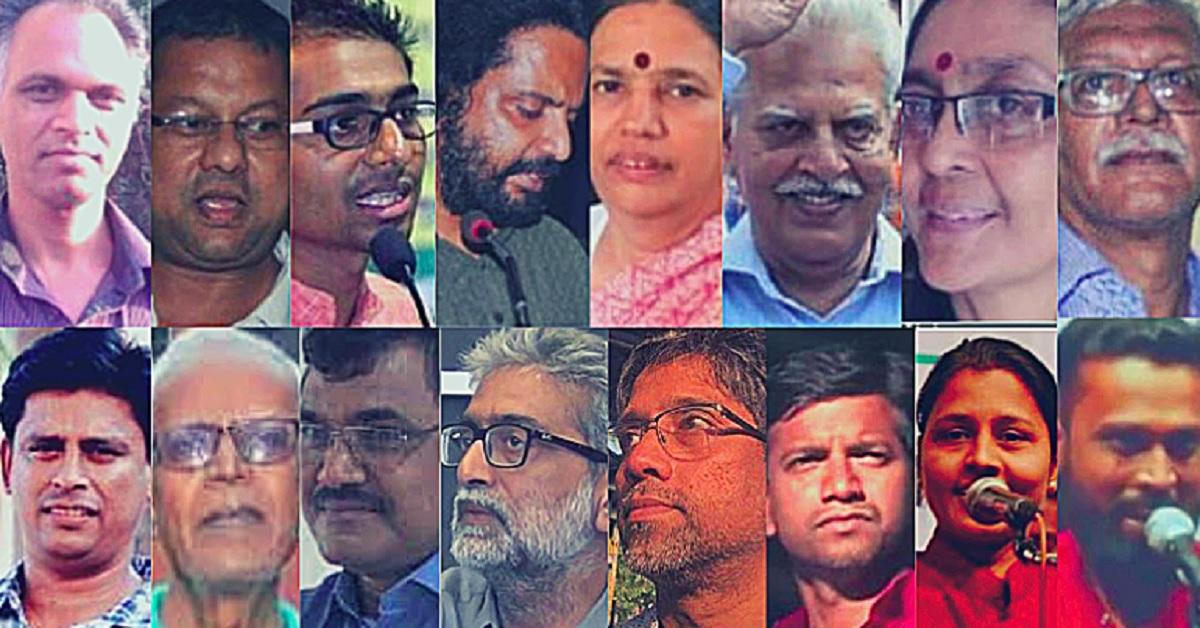Rethinking the Bhima Koregaon Case
Context:
The recent Supreme Court’s decision to grant bail to activists Vernon Gonsalves and Arun Ferreira in the Bhima Koregaon case has brought to light the complexities of dealing with stringent anti-terrorism laws and the denial of bail.
Relevance:
GS – 02 (Fundamental Rights, Judgements & Cases, Judiciary, Government Policies & Interventions, Transparency & Accountability)
Prelims:
- Types of Offences
- Power to grant bail
- CrPC
- IPC
- Supreme Court Judgements
Mains Question:
What are the key provisions of Section 43D(5) in the UAPA, and how does it affect the bail decisions for those arrested under serious charges? (150 words)
Dimensions of the Article:
- Unpacking the Bail Order
- The Conundrum of Section 43D(5) in UAPA
- “Broad Probabilities” and Bail Decisions
- The Supreme Court’s Debunking of the Case
- Precedents of Release and Skepticism of Prosecution Claims
Unpacking the Bail Order:
- The recent Supreme Court order that granted bail to Vernon Gonsalves and Arun Ferreira has opened new avenues of legal interpretation in cases governed by the Unlawful Activities (Prevention) Act (UAPA).
- This watershed moment highlights how a preliminary assessment can expose weaknesses in the police’s case, challenging the norm of bail denial for individuals accused under stringent anti-terrorism laws.
The Conundrum of Section 43D(5) in UAPA
- Section 43D(5) of the UAPA poses a formidable obstacle for those seeking bail, as it mandates that bail cannot be granted if there are reasonable grounds to believe the accusation to be true.
- The Court’s decision to grant bail despite this provision sheds light on the importance of scrutinizing evidence and reevaluating the merits of the case at hand.
“Broad Probabilities” and Bail Decisions
- In 2019, the apex court ruled that detailed evidence analysis should not be conducted at the bail stage. Instead, bail should be determined based on “broad probabilities” of the case.
- The recent bail order challenges this approach by emphasizing the need for a deeper examination of evidence, thereby offering a new perspective on bail decisions.
The Supreme Court’s Debunking of the Case
- The bail order not only grants freedom to the accused activists but also casts doubt on the prosecution’s case. The Court observes a lack of concrete evidence establishing the accused’s involvement in the alleged conspiracy.
- The Court’s comment on participation in seminars refutes the notion that mere attendance can constitute an offense under UAPA’s bail-restricting provisions.
Precedents of Release and Skepticism of Prosecution Claims
- The Bhima Koregaon violence case has seen a mix of release orders and skepticism regarding the prosecution’s claims.
- Sudha Bharadwaj’s release on “default bail” and Telugu poet Varavara Rao’s release on medical grounds highlight the complexities of the case.
- Additionally, Anand Teltumbde’s release due to lack of evidence and the unfortunate demise of Father Stan Swamy in prison raise further questions about the credibility of the prosecution’s case.
Way Forward:
The bail order’s implications underscore the need for a comprehensive reexamination of the Bhima Koregaon case. It calls for thorough investigations into the alleged evidence manipulation and raises questions about the credibility of the prosecution’s claims. A transparent and fair evaluation is essential to ensure justice and uphold the rule of law.
Conclusion:
The recent Supreme Court bail order in the Bhima Koregaon case signifies a turning point in how stringent anti-terrorism laws are applied in granting bail. The order’s emphasis on scrutinizing evidence, questioning claims, and reevaluating the merits of the case demonstrates the Court’s commitment to upholding justice. The complexities and fragility of evidence revealed in this order should prompt a thorough review of the case, ensuring that justice prevails, and human rights are protected.




